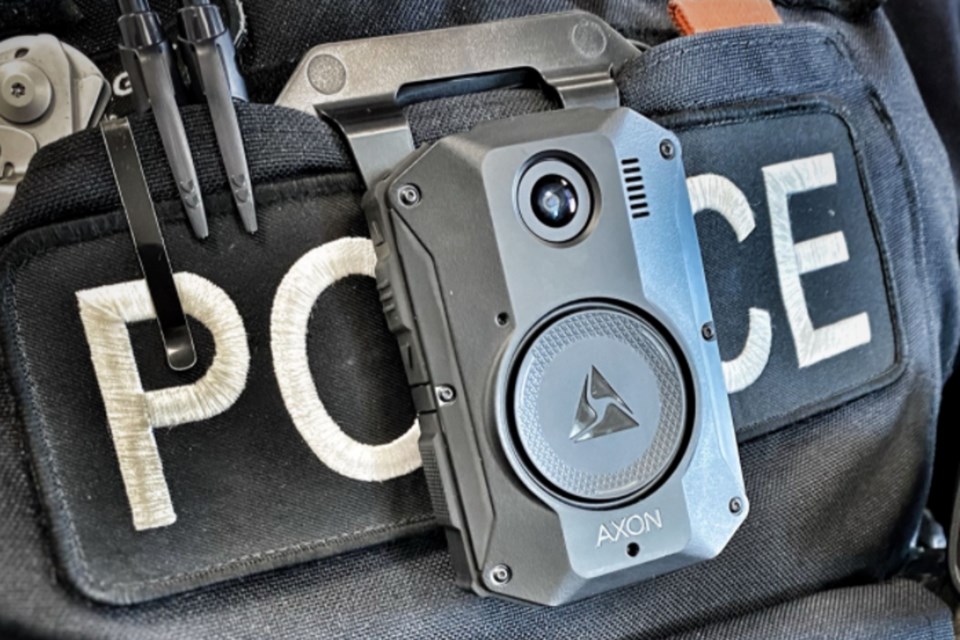Greater Sudbury Police Service staff plan to begin rolling out body-worn cameras as part of a pilot project in 2025.
Although additional information on finances and timelines is expected during the Greater Sudbury Police Board’s Oct. 16 meeting, member Gerry Lougheed sussed out some details.
During the board’s Sept. 18 meeting, Lougheed pulled aside the fact the body-worn cameras were approved three years ago and have yet to be deployed, asking, “Is three years appropriate?”
North Bay has made little progress in getting the cameras, with not much optimism they'll be used anytime soon. "I have to admit it's a large disappointment that we haven't rolled it out in the last three years that we've been working on it," said retired chief Scott Tod earlier this year.
See: Retired Chief disappointed about police body-worn camera rollout
While acting Chief Natalie Hiltz noted that a complicated data-management system had to be established in the back end first, with various people hired, Lougheed countered, “Many things in police services are complicated. ... This just seems like it’s taking a lot of time.”
He noted that other police services are already using body-worn cameras.
“We’ve never in the police agency done this before,” Hiltz said, adding that given the complexity of body-worn cameras, “I don’t think taking a fast approach is particularly prudent.”
Deputy Chief Sara Cunningham (who was later announced as chief-designate to replace departed former Chief Paul Pedersen) affirmed that body-worn cameras have “absolutely” been a priority, but that they had to implement various steps along the way.
It’s not just simply saving video files, she clarified, though that does take staff and computing power. They also need the ability to do such things as redact portions of videos.
Earlier this month, Hiltz affirmed the body-worn cameras would start out as a pilot program with a small subset of frontline staff to help work out the program’s kinks before expanding it to the entirety of GSPS.
“This is a piece of tech that we want, and our officers want,” she said. “It’s been found to improve positive interactions between police and the public, it makes people feel safer, it reduces citizen complaints and increases arrests, prosecutions and guilty pleas. ... It makes us better.”
Various other police services have also taken a gradual approach toward full deployment.
During the Sept. 18 Greater Sudbury Police Board meeting, GSPS Communications Information Technology manager Nathan Dokis cited their intention to begin rolling out body-worn cameras during a 2025 pilot project, and that they’re also working toward various other data-driven initiatives.
These efforts include real-time digital paperwork police officers can file on the street rather than have them dedicate time at the end of their shifts toward filing paperwork.
The Oct. 16 police board meeting will include a motion dealing with the options for “effectively deploying this program with related timelines,” Hiltz said.
Tyler Clarke covers city hall and political affairs for Sudbury.com.
